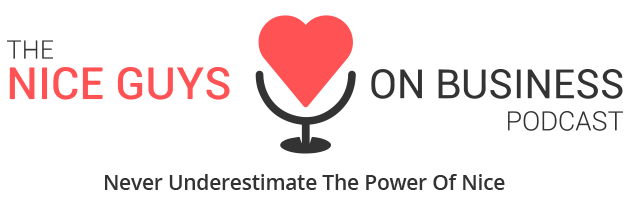If you’ve ever misplaced your keys, you know it can be a real time killer to turn the whole place upside to find them. Even worse, it always seems to happen when you’re already late! Shit happens. Sometimes we lose our keys in the crack of the sofa. Other times we’re so distracted by the noise of life that we absent-mindedly misplace them.
With tasks as it is with keys. If we don’t have a system for organizing our tasks we’ll waste more time scrambling around than doing something useful. The Nice Guys on Business frequent the topic of organization. In episode 571, Tyler Badu is essentially talking organizing when he is giving tips to the Guys about how to improve their sales process.
When we are organized, we can keep our minds clear so we can focus on the task at hand. With a clear mind, we can get each task done quicker and make fewer mistakes. Fewer mistakes means not having to go back and fix them.
When you’re organized you get to live in the moment. When you live in the moment, you’ll be at your best and happiest!
Don’t believe me? See what Matt Killingsworth has to say on the subject in this compelling TED talk.
Here are some tips to get more organized:
Establish Routines.
Set aside specific times to perform specific activities.
Some things you might do are to put aside a specific time each week to do invoicing, budgeting, or paying bills. Stick to the same time and day each week – put it on your calendar!
Other routines are about time-boxing activities like checking email or social media. These are activities you do each day or multiple times per day, but they don’t need to invade your entire day! Put aside enough time and frequency to give them proper attention and focus as needed.
Take time to plan.
A little planning goes a long way.
Planning is more about making a to-do list and making sure you have everything you need to complete each task. For example, you may find that you need some key information or talk to someone before you start knocking out the tasks.
The devil is in the details so try not to get too elaborate too soon or you’ll spend more time planning than doing – planners block is real!
The time to elaborate is part of the task or a separate task (if I’m getting to rigid with making everything an explicit task, take it with a grain of salt and find what works for you). If you prepare for your task during the task, be sure to plan enough time. You’ll need time for the preparation and for whatever additional tasks might come out!
Break it down.
Break down big tasks into smaller ones.
A standard practice in the software development industry, is to break features down into smaller pieces and build those up to the deliverable feature.
Besides the benefit of shaking out more of the details and having better cost estimates, breaking down tasks has a positive psychological effect. There is a transformation from some big unapproachable task into small approachable tasks. Those smaller tasks are easier to reason about which means we’re more likely to do them instead of put them off.
One thing at a time!
In a perfect world, we’d be able to finish each task before starting a new one. Strive for this because it really does help to focus on one thing at a time.
Context switching is a productivity killer!
We don’t want to switch between doing one kind of thing and another too often. If you have to go deeper into a context, your switching costs will be even higher.
Context switching exists in two dimensions – horizontal and vertical. If you have to switch across contexts horizontally, you can’t go too deep vertically into any one context without paying the penalty. For example, if you’re discussing details about the budget – it will cost focus and time to switch the topic to details about a new product, then go back to talking about the budget. Make a clean break before going deep!
If you can’t complete a task, have a way to park it and revisit it after you complete another task or two. It’s a fact of life – the world isn’t perfect, but we can at least have a way to expect the unexpected and have a system to deal with unfinished tasks.
WIP (Work in Progress) limits can be used to minimize the number of tasks in progress and having limits on parked tasks are a good idea too. We don’t want to have to many loose threads from the past hanging around clouding up our present timeline.
Check off done.
Check off tasks as you complete them. With some organizational tools such as a task board or Kanban board, you’ll move the card into the “done” column on the board.
As you mark off each task, review the entire list and see your progress. This is a motivational exercise as much as it is an organizational one. It gives us tangible progress even in the absence of other physical evidence of progress.
If you can see the progress as you review the list, then that’s even better! For example, if you do some cleanup as you inventory your warehouse, you can go back through the completed sections and take another look at your work to see physical progress.
Wrapping up.
I’ve shared some tips and techniques that have helped me juggle the stuff of life. I hope you can find value in these suggestions and apply them to your own life to improve your quality, productivity and happiness! Make them your own by tailoring them to your own style, situation and temperament. After all, one size does not fit all – despite what the package says. Have a great day!
About the author:
Phil Vuollet
Phil develops software and writes technology blogs. He has a B.A. from Columbia College Chicago in Audio Recording and worked for over a decade in the music industry before turning his mind to software. He enjoys helping companies solve problems with technology and integrating systems. He is a family man who enjoys science, home-brewing and fishing. He would swap his golf average for his bowling average any day.
@philn5d

